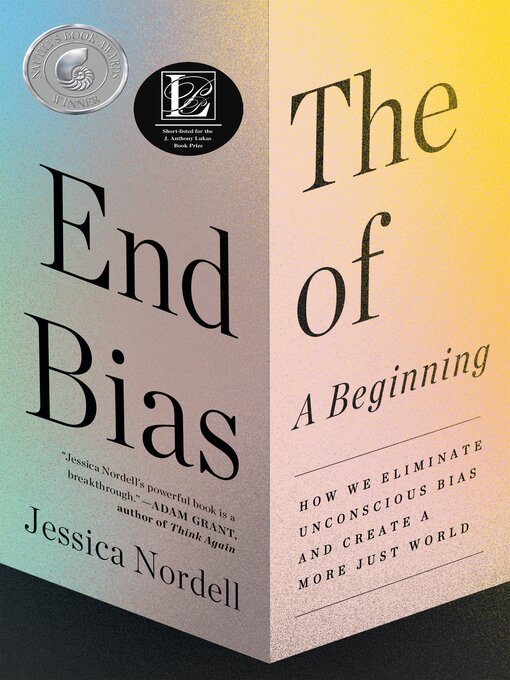FINALIST FOR THE NYPL HELEN BERNSTEIN AWARD FOR EXCELLENCE IN JOURNALISM, THE LUKAS BOOK PRIZE, AND THE ROYAL SOCIETY SCIENCE BOOK PRIZE
2022 NAUTILUS BOOK AWARD SILVER MEDAL * AMERICAN SOCIETY OF JOURNALISTS AND AUTHORS HONORABLE MENTION IN GENERAL NONFICTION
NAMED A BEST BOOK OF THE YEAR BY WORLD ECONOMIC FORUM, AARP, GREATER GOOD, AND INC.
The End of Bias is a transformative, groundbreaking exploration into how we can eradicate unintentional bias and discrimination, the great challenge of our age.
Unconscious bias: persistent, unintentional prejudiced behavior that clashes with our consciously held beliefs. We know that it exists, to corrosive and even lethal effect. We see it in medicine, the workplace, education, policing, and beyond. But when it comes to uprooting our prejudices, we still have far to go.
With nuance, compassion, and ten years' immersion in the topic, Jessica Nordell weaves gripping stories with scientific research to reveal how minds, hearts, and behaviors change. She scrutinizes diversity training, deployed across the land as a corrective but with inconsistent results. She explores what works and why: the diagnostic checklist used by doctors at Johns Hopkins Hospital that eliminated disparate treatment of men and women; the preschool in Sweden where teachers found ingenious ways to uproot gender stereotyping; the police unit in Oregon where the practice of mindfulness and specialized training has coincided with a startling drop in the use of force.
Captivating, direct, and transformative, The End of Bias: A Beginning brings good news. Biased behavior can change; the approaches outlined here show how we can begin to remake ourselves and our world.
Includes illustrated charts

-
Creators
-
Publisher
-
Release date
September 21, 2021 -
Formats
-
Kindle Book
-
OverDrive Read
- ISBN: 9781250186171
-
EPUB ebook
- ISBN: 9781250186171
- File size: 6674 KB
-
-
Accessibility
-
Languages
- English
-
Reviews

Loading
Formats
- Kindle Book
- OverDrive Read
- EPUB ebook
subjects
Languages
- English
Why is availability limited?
×Availability can change throughout the month based on the library's budget. You can still place a hold on the title, and your hold will be automatically filled as soon as the title is available again.
The Kindle Book format for this title is not supported on:
×Read-along ebook
×The OverDrive Read format of this ebook has professional narration that plays while you read in your browser. Learn more here.